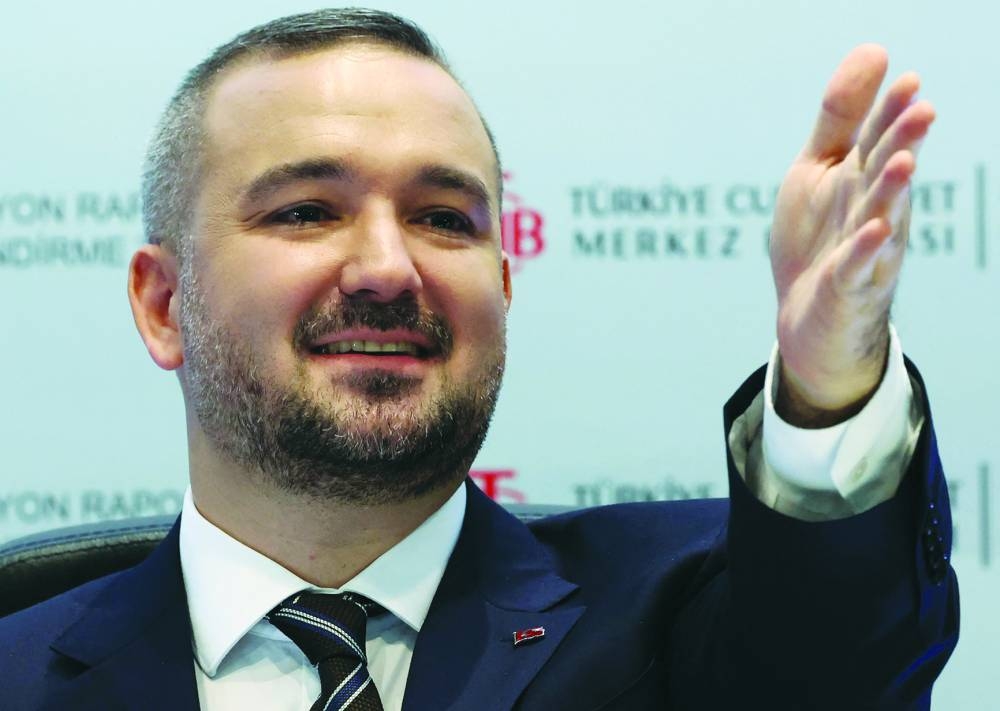Turkiye’s central bank left its main interest rate unchanged for a sixth straight month, but removed an explicit reference that it would tighten its stance further.
The Monetary Policy Committee, led by Governor Fatih Karahan, kept the one-week repo rate at 50% on Thursday, a decision that was in line with the forecasts of all economists surveyed by Bloomberg.
“Monetary policy tools will be used effectively in case a significant and persistent deterioration in inflation is foreseen,” the MPC said in a statement accompanying the decision. The previous guidance had explicitly pledged further tightening if needed.
Central bank officials said domestic demand, the key contributor of hot prices in the past, was slowing down with a “diminishing inflationary impact” based on third quarter indicators. They also cited expectations of an improvement in services inflation, which has been sticky, to occur in the last quarter.
The emphasis on the final quarter likely shifts interest-rate cut expectations closer to year-end.
“We believe today’s statement supports our view of rate cuts starting in November,” said Okan Ertem, senior economist at Turk Ekonomi Bankasi AS. Like Ertem, economists from Goldman Sachs Group Inc and Barclays Plc were forecasting the first cut in November.
The Turkish lira briefly extended gains to as much as 0.2% before trading 0.1% higher at 34.0285 per US dollar as of 2.11pm on Thursday In Istanbul. Turkish stocks extended gains, with benchmark Borsa Istanbul 100 Index rising as much as 2% to session high.
Annual inflation fell by almost 10 percentage points in August, but remains some way above the central bank’s year-end projection of 38%.
While major global central banks like the US Federal Reserve have started lowering their borrowing costs as they approach their inflation targets, Turkiye is on a different cycle. It started raising borrowing costs much later than many other monetary authorities after a transformation of economic management following President Recep Tayyip Erdogan’s reelection last year. Annual inflation remains more than 10 times its ultimate target of 5%.
Turkish officials will want to see monthly inflation below 2% before it starts cutting, Goldman economists Clemens Grafe and Basak Edizgil said in a note following a trip to Turkiye last week. “From the bank’s perspective, easing monetary policy prematurely is more costly in Turkiye than falling behind the curve, especially in the current environment,” they said before the decision, while forecasting a 100 basis-point reduction in November.

Turkish Central Bank Governor Fatih Karahan.
